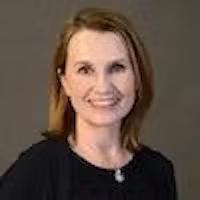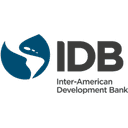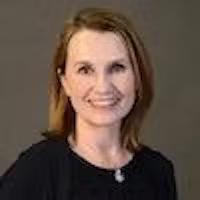Learn effective strategies to teach climate change through engaging activities and interactive methods for primary and secondary school students.
Learn effective strategies to teach climate change through engaging activities and interactive methods for primary and secondary school students.
Master the art of teaching climate change with this comprehensive educator-focused course. Learn to present complex climate science concepts through interactive and engaging activities designed for primary and secondary students. The course covers fundamental climate science, social implications, and practical teaching methods using games, experiments, and multimedia tools. Discover how to create positive, participatory learning experiences while exploring climate change's impacts on water, energy, soil, and health. Perfect for educators seeking to integrate climate education into their curriculum.
4.5
(13 ratings)
15,351 already enrolled
Instructors:
English
English, Spanish
What you'll learn
Teach fundamental climate science principles effectively
Implement engaging classroom activities using multimedia tools
Explain climate change impacts on water, energy, and environment
Create interactive learning experiences through experiments and debates
Develop sustainable living practices in school communities
Skills you'll gain
This course includes:
PreRecorded video
Graded assignments, exams
Access on Mobile, Tablet, Desktop
Limited Access access
Shareable certificate
Closed caption
Get a Completion Certificate
Share your certificate with prospective employers and your professional network on LinkedIn.
Created by
Provided by

Top companies offer this course to their employees
Top companies provide this course to enhance their employees' skills, ensuring they excel in handling complex projects and drive organizational success.





There are 7 modules in this course
This comprehensive course equips educators with knowledge and tools to teach climate change effectively. Through interactive methods including games, debates, experiments, and multimedia resources, participants learn to create engaging learning experiences. The curriculum covers climate science basics, energy cycles, water systems, soil impacts, landscape changes, sustainable environments, and health implications. Special emphasis is placed on practical, hands-on activities suitable for primary and secondary education.
Our Climate is Changing
Module 1
Energy and the Climate Change
Module 2
Water and the Climate Change
Module 3
Soil and the Climate Change
Module 4
Landscape and the Climate Change
Module 5
Sustainable Environments
Module 6
Healthy Environments
Module 7
Fee Structure
Instructors

2 Courses
Education Specialist
Since September 2002, Emma Näslund-Hadley has served as an education specialist in the Education Division of the Inter-American Development Bank (IDB) in Washington, DC. She leads and collaborates on a diverse array of projects in the education sector and coordinates the Bank's initiatives to enhance mathematics and natural sciences education. From 1999 to 2002, Emma was a policy advisor in the European Parliament, focusing on education policy, gender issues, and labor market concerns. Previously, she held roles at the United Nations and the Swedish International Development Agency, where she was responsible for designing, implementing, and monitoring education projects in Central America, Mexico, the Dominican Republic, and Cuba. Emma has authored articles in peer-reviewed journals and institutional reports. She holds a master's degree in international economics and finance from Linköping University and a master's degree in public affairs from Princeton University.

1 Course
Renewable Energy and Infrastructure Expert
Juan Roberto Paredes is a Senior Renewable Energy Specialist in the Energy Division at the Inter-American Development Bank (IDB), where he leads technical due diligence for renewable energy projects with a focus on wind and solar energy. His expertise extends to advising regional governments on grid integration of variable renewable energies, smart grids, and regional electricity integration. His academic credentials include a B.S. in Mechanical Engineering and Physics from the University of Los Andes in Bogotá, a M.Sc. in Renewable Energies from Oldenburg University, and executive education from prestigious institutions including Harvard's Kennedy School of Government, MIT, and Stanford University. Prior to IDB, he worked with German and UK wind consultancies, where he evaluated over 1000MW of wind farm projects. At IDB, he plays a crucial role in advancing renewable energy initiatives across Latin America and the Caribbean, contributing to the region's ambitious goal of achieving 80% renewable electricity generation by 2030. His work supports IDB's comprehensive approach to energy transition, including financing transmission infrastructure and implementing innovative technologies for grid optimization.
Testimonials
Testimonials and success stories are a testament to the quality of this program and its impact on your career and learning journey. Be the first to help others make an informed decision by sharing your review of the course.
Frequently asked questions
Below are some of the most commonly asked questions about this course. We aim to provide clear and concise answers to help you better understand the course content, structure, and any other relevant information. If you have any additional questions or if your question is not listed here, please don't hesitate to reach out to our support team for further assistance.



